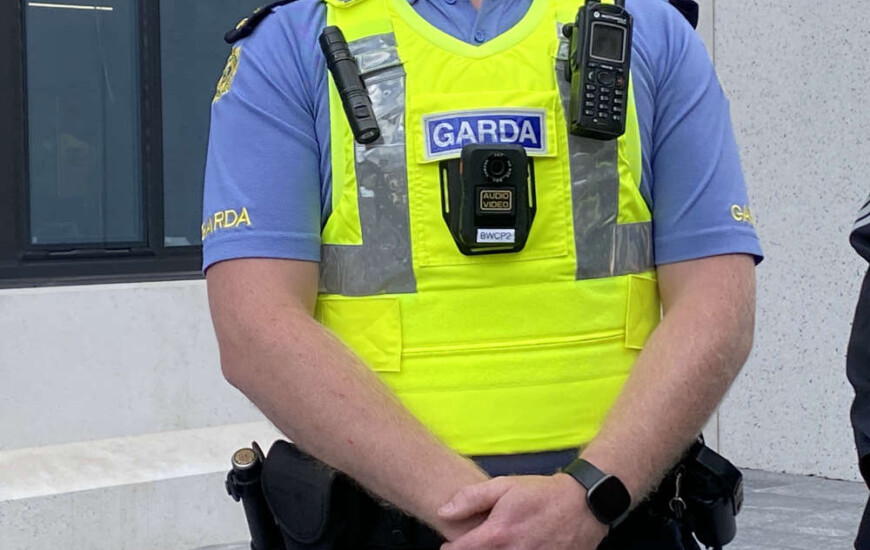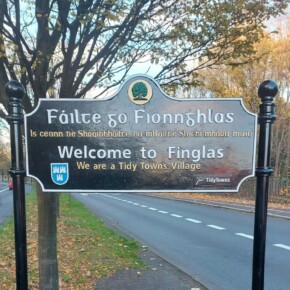ICCL raises concerns over Garda bodycam plan
Mike Finnerty 21 Sep 2023
The Irish Council for Civil Liberties (ICCL) has cautiously welcomed the announcement from An Garda Síochána that they will pilot the introduction of bodyworn cameras.
Liam Herrick, executive director with ICCL, said “bodyworn cameras are a new form of surveillance technology to be introduced in Ireland and they directly impact on people’s privacy rights and other key civil liberties such as freedom of assembly.”
“We need to be very careful in how they are introduced and ensure that adequate safeguards are put in place to protect people’s fundamental rights.”
“If a surveillance technology infringes on fundamental rights, it has to be demonstrated that it meets the threshold of legality, necessity and proportionality and that it is the least intrusive measure.”
Minister for Justice Helen McEntee said “this modern technology is a key tool for frontline Gardaí and represents a practical expression of our commitment to build stronger, safer communities. “
“I believe it is essential to delivering on Government’s aim to ensure An Garda Síochána is a modern police service fit for the digital age.”
“Policing organisations around the world have found that bodyworn cameras can help improve front-line capability with the accurate recording of incidents, such as instances of domestic abuse,” she said.
She claimed that bodycams would speed up analysis, enhance situational awareness, and protect Gardaí from harm.
While the move away from “blanket surveillance” was welcomed by Herrick, he has reservations over the exact details of the use of bodyworn cameras and what safeguards will be put in place.
Per Herrick, there has been no information communicated on how and when Gardaí will use the cameras, how footage is stored and/or used; and how access to this footage will be managed.
“Much of what has been announced reflects what ICCL has been calling for and to this end, we cautiously welcome the news that An Garda Síochána intends to pilot the use of bodyworn cameras before moving to a national roll-out.”
“The pilots should assess whether the cameras deliver on their promised benefits, and the results should be reviewed and published before moving to any national roll-out. A national roll-out of this technology should not be a predetermined outcome of this process.”
The ICCL said that the legislation surrounding bodycams will have to be “precise”.
The organisation said they have made a number of submissions on the draft legislation and put forward suggested amendments, and will continue to engage with this process.
The ICCL raised concerns about the use of bodyworn cameras in domestic violence situations, citing the vulnerability of people involved.
“We have previously urged that the legislation should be supported by a protocol saying that when a Garda uses a bodyworn camera while interacting with an apparent domestic violence victim, they would ask the person as soon as possible if they want the camera turned off, and thereafter respect the person’s wishes in relation to recording.”
“In relation to facial recognition technology, ICCL is clear that there is no lawful basis for its use in law enforcement in Ireland.
“We note An Garda Síochána’s intention to subject some bodyworn camera footage to retrospective FRT and we reiterate our opposition to FRT and to any legislation being proposed over the coming year,” they said.











